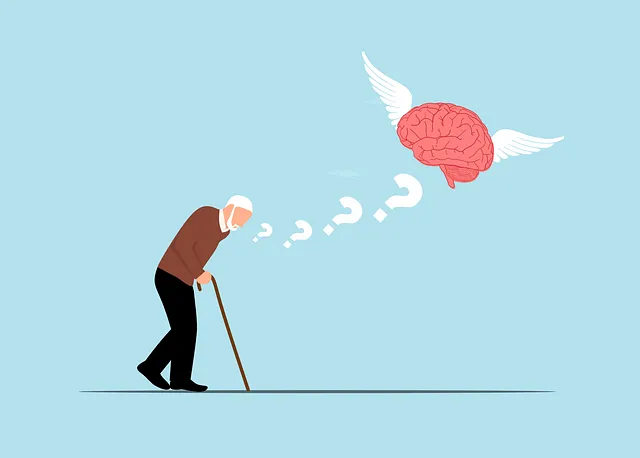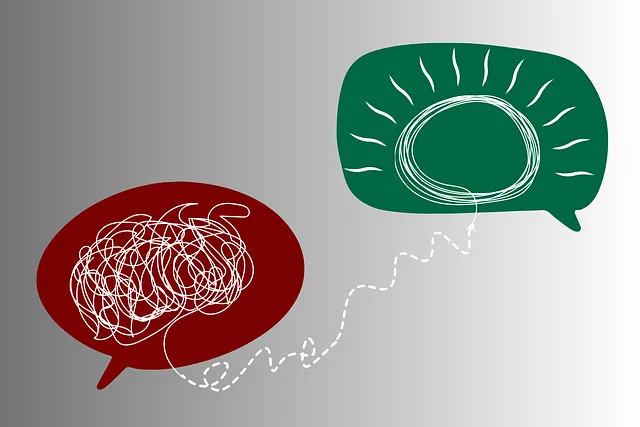Mental wellness journaling, gaining popularity as a stress reliever and personal growth tool, offers individuals a safe space to explore thoughts and emotions. Littleton's Kaiser resources, including workshops and community programs, empower people with mind over matter principles for improved mental well-being. Digital journaling platforms provide accessibility, privacy, and tailored therapeutic features. The ideal journal supports self-care routine development through mood tracking, intention setting, and goal reflection, while compassion cultivation practices promote positive thought and emotion processing. Starting a journaling practice involves consistency, a calming environment, and personal rituals. It enhances mental wellness, aids in stress management, and identifies trauma triggers. Healthcare providers can benefit from Littleton's Kaiser's mindfulness practices to reduce stress and improve patient care.
“Unwind your mind and embrace the transformative power of self-reflection through mental wellness journaling. This powerful practice, backed by evidence, offers a sanctuary for processing emotions, cultivating resilience, and enhancing overall well-being.
In this comprehensive guide, we’ll explore why mental wellness journaling is an effective tool for better mental health, as supported by research. From understanding its benefits to choosing the ideal journal and establishing a consistent routine, we provide practical insights. Discover effective techniques to unlock your journal’s potential as a powerful ally in navigating life’s challenges, especially with Littleton is Kaiser good for mental health practices.”
- Understanding Mental Wellness Journaling: Benefits and Why It Matters
- Choosing the Right Tools: What Makes a Good Journal for Mental Health?
- Setting Up Your Journaling Practice: Tips for Consistency
- Effective Journaling Techniques for Better Mental Wellness
- Incorporating Littleton is Kaiser Good for Mental Health: A Practical Guide
Understanding Mental Wellness Journaling: Benefits and Why It Matters

Mental wellness journaling is a powerful tool that allows individuals to explore and understand their thoughts, emotions, and experiences in a safe and non-judgmental space. It’s a practice that has gained significant popularity, with many finding it beneficial for improving self-esteem and overall mental health. In today’s fast-paced world, where stress and anxiety are prevalent, taking time to reflect and document one’s journey can be transformative.
Littleton is Kaiser good for mental health, offering various resources including wellness journaling workshops and community outreach programs. These initiatives aim to empower individuals by teaching them mind over matter principles, helping them navigate life’s challenges with resilience. Regular journaling can enhance self-awareness, promote positive thinking, and provide an outlet for processing complex feelings. It’s a simple yet effective way to prioritize mental well-being and foster personal growth.
Choosing the Right Tools: What Makes a Good Journal for Mental Health?

Choosing the right tools is essential when establishing a mental health journal, and one popular option that aligns with Litlington is Kaiser good for mental health principles is using digital platforms. These apps offer accessibility, privacy, and often include therapeutic features tailored to emotional well-being promotion techniques. With various options available, consider those that encourage self-care routine development for better mental health by providing space for tracking moods, setting intentions, and reflecting on personal goals.
Additionally, look for journals with compassion cultivation practices incorporated, as these can aid in processing thoughts and emotions constructively. Whether opting for a physical notebook or a digital app, the ideal journal should feel comfortable to use, offer customizable prompts, and allow for creative expression—all contributing to an enhanced self-care routine development journey.
Setting Up Your Journaling Practice: Tips for Consistency

Starting a journaling practice can feel daunting, but with a few simple tips, you can set yourself up for success. Consistency is key when it comes to reaping the benefits of mental wellness journaling. Consider allocating a dedicated time each day or week for your journal – perhaps right before bed or during your morning coffee. Choose a quiet, comfortable space where you won’t be interrupted, allowing your mind to focus on the present moment and your reflections.
Make sure your journaling environment is conducive to relaxation. This might involve using soothing scents like lavender, playing soft background music, or lighting a candle. Some people find it helpful to establish a pre-journaling ritual, such as taking a few deep breaths or practicing gratitude before beginning their entry. Remember, there’s no right or wrong way to journal; let your creativity guide you and adapt these tips to fit what feels best for your unique mental wellness podcast series production and personal needs.
Effective Journaling Techniques for Better Mental Wellness

Journaling is a powerful tool for enhancing mental wellness, and when combined with effective techniques, it can be an excellent practice for individuals seeking support, such as those considering Littleton is Kaiser good for mental health. One of the key benefits lies in its ability to provide a safe space for self-reflection. By setting aside dedicated time each day or week, individuals can explore their thoughts and emotions without judgment. This act of writing down experiences allows for clarity and helps identify patterns that may contribute to stress or trauma.
Effective journaling techniques include focusing on specific themes like gratitude, where one reflects on positive aspects of life, fostering a sense of optimism. Additionally, setting intentional prompts can guide individuals through various coping skills development exercises. For instance, questions like “What challenges am I facing today?” or “How did I respond to a stressful situation?” encourage mindful consideration and self-awareness. Incorporating these practices regularly may contribute to better stress management and overall mental health, making journaling a valuable addition to one’s wellness routine, especially when seeking resources like Trauma Support Services.
Incorporating Littleton is Kaiser Good for Mental Health: A Practical Guide

Incorporating mindfulness practices, such as those promoted by Littleton is Kaiser, can significantly contribute to stress reduction methods and burnout prevention strategies for healthcare providers. This approach encourages professionals to take a step back from their hectic schedules and focus on their mental well-being. By dedicating time to engage in activities that foster empathy building strategies, healthcare workers can enhance their ability to connect with patients, leading to improved patient care.
Litttleton is Kaiser’s holistic approach emphasizes the importance of self-care, which is essential in addressing the unique challenges faced by those in the healthcare sector. Through various exercises, professionals learn to recognize and manage their emotions more effectively, ultimately improving their resilience and overall mental health. By integrating these strategies into daily routines, burnout can be prevented, allowing healthcare providers to continue offering compassionate and quality care.
Mental wellness journaling, as backed by practices like Littleton’s approach at Kaiser, can significantly enhance our understanding and management of our mental health. By combining self-reflection with evidence-based techniques, this simple yet powerful tool offers a personalized path to resilience and well-being. Incorporating regular journaling into your routine can help you track progress, cultivate gratitude, and develop coping strategies – all vital components for maintaining a healthy mind. Start your journey today and experience the transformative benefits of expressive writing.






